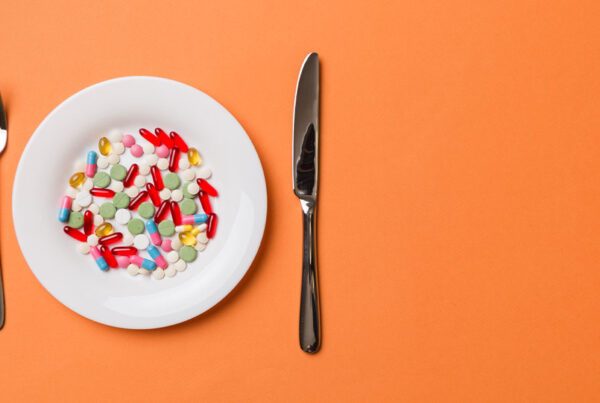Vit C Infusion While Undergoing Cancer Treatment:
Vitamin C is a nutrient that is found in food, such as oranges, grapefruit, papaya, peppers, kale, or in dietary supplements. Vitamin C is an antioxidant and helps prevent damage to cells caused by free radicals. It also works with enzymes to play a key role in making collagen. Vitamin C is also called L-ascorbic acid or ascorbate.
In this article we would be discussing if large dose infusion of vitamin C while you are undergoing treatment like chemotherapy has any advantages on the progression of cancer, if it interacts with the kind of treatment given and the challenges of vitamin C of infusion. So, without any further ado let’s start.
MSKCC says that the role of vitamin C in cancer prevention is not definitive. Conclusions of a systematic review suggest its safety and another study showed its ability to reduce oxidative stress. Further, high plasma levels of vitamin C were associated with lower gastrointestinal cancer incidence probably due to its protective effects against dietary carcinogenic nitroso compounds.
There are conflicting theories against the use of vitamin C supplements during chemotherapy. Pre-clinical studies found that cancer cells preferentially uptake vitamin C and render some chemotherapy drugs less effective. Also, a major concern surrounding the use of antioxidants such as vitamin C is that they can interfere with the actions of chemotherapy and radiation therapy that rely on the production of reactive oxygen species for their cytotoxic activities. A clinical study however, showed that ascorbic acid does not reduce the therapeutic effects of paclitaxel and carboplatin. Another study found an increase in chemotherapy-associated adverse effects with inadequate intake of vitamin C in children with acute lymphoblastic leukemia. Preliminary findings indicate that short-term vitamin C plus E supplementation during radiotherapy had a protective effect against xerostomia in patients with head and neck cancer; a combination of vitamins C, E, and selenium lowered radioiodine-induced oxidative stress in thyroid cancer patients and supplementation may enhance the biological effects of DNA methyltransferase inhibitors in patients with myeloid cancer.
Adverse effects from vitamin C are rare but there are reports of gastrointestinal upset, kidney stone formation, and hemolytic anemia in patients with G6PDH deficiency. Patients with a history of oxalate kidney stones, renal insufficiency, hemochromatosis, or those undergoing chemotherapy should consult their physicians before taking vitamin C supplements.
According to NCI, there are at least three challenges that have thus far prevented large-scale, randomized controlled trials of vitamin C for cancer therapy. First, vitamin C is not patentable. Therefore, there is no financial incentive for pharmaceutical companies to support vitamin C clinical trials, and those that have been done have largely relied on government grants and small private donations. Second, as discussed above, vitamin C cancer therapy has a long history of controversy. Due to the Mayo clinical studies in the 1980s, many orthodox, mainstream clinicians have a prejudice against vitamin C therapy. Third, although many preclinical studies showed high dose vitamin C could kill cancer cells or retard tumor growth in vivo, vitamin C’s mechanisms of action have not been clear, making it hard to predict the pharmacodynamics, the rational design of combinational therapy and biomarkers for patient stratification. Fortunately, a growing number of recent and rigorous preclinical studies have begun resolving the third challenge, which may also lead to overcoming the first and second barriers.
According to one study conducted by Nina Mikirova et all, it was found that continuous IVC infusions improved several parameters associated with poor cancer prognosis. The data suggests a strategic benefit to using lower IVC doses in continuous infusions: raising the dose above 300 mg/kg/day (20 grams in 70 kg human) increased the frequency of side-effects without noticeably increasing plasma ascorbate levels. Moreover, improvements in lymphocyte counts at low IVC doses tended to decrease at the higher doses.
In conclusion, we would suggest not relying on the information you see online on various platforms, but to discuss the pros and cons of the same with your oncologist and then do the needful.
References:
https://www.ffhdj.com/index.php/ffhd/article/view/590/932
https://www.cancer.gov/about-cancer/treatment/cam/patient/vitamin-c-pdq
https://www.mskcc.org/cancer-care/integrative-medicine/herbs/vitamin-c#msk_professional
Tags: Cancer treatment, Vitamin C infusion, dietary supplement, free radicals, collagen, L-ascorbic acid or ascorbate, large dose infusion of vitamin C, chemotherapy, MSKCC, oxidative stress, paclitaxel and carboplatin, acute lymphoblastic leukemia, xerostomia, lowered radioiodine-induced oxidative stress, thyroid cancer patients, supplementation, Adverse effects, gastrointestinal upset, kidney stone formation, hemolytic anemia, cancer prognosis, cancer









